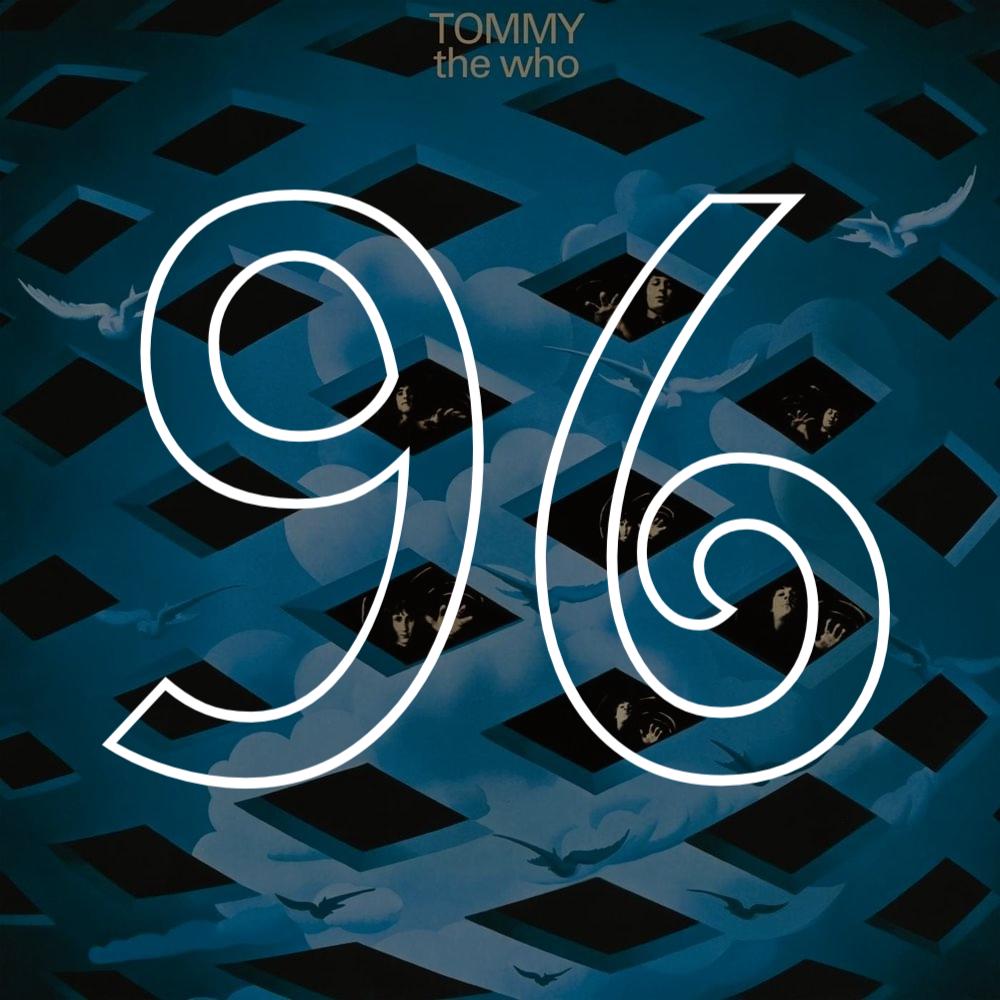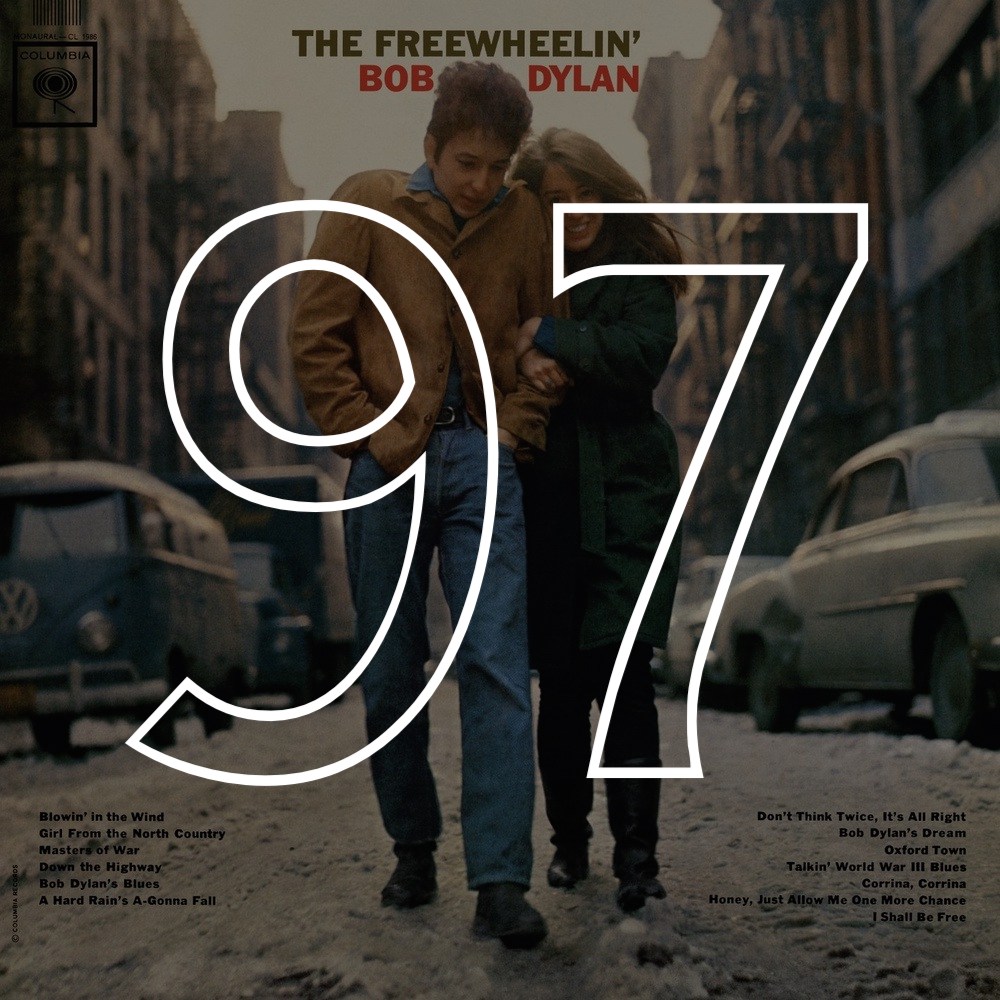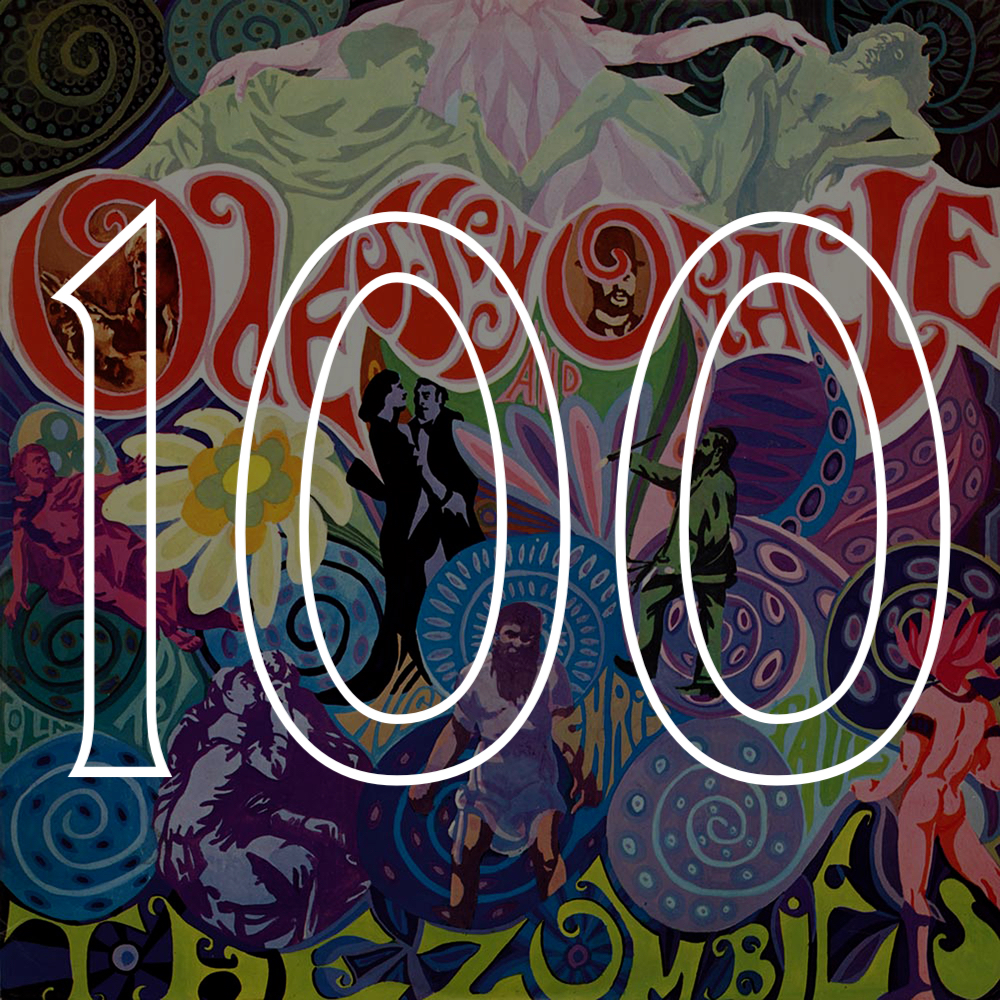#94: Hank Williams, "40 Greatest Hits" (1978)
My radio stays tuned to 93.3. WFLS Country. It’s not for the love of what’s on the radio as much as it’s a habit and a vice.
And because there is no greater vice than Florida Georgia Line.
In “This is How We Roll,” Georgia whines out the first two lines, “The mixtape's got a little Hank, little Drake / A little something bumping, thump, thumping on the wheel ride.”
Ignore that the second line is ridiculous. I believe that both Msrs. Florida and Georgia listen to Drake but name-dropping Hank Williams seems little more than a conveniently manufactured play to the powers that be in Nashville.
They are not the first to cement their authenticity in the genre by doing this, and they won’t be the last.
I believe Maren Morris, that her radio cranks out Williams. Country’s newest queen Kacey Musgraves covers his hits like she, too, feels his sparse poetry somewhere deep. I’d even buy that Eric Church had his “Record Year” with every artist he name drops.
But then there are the Justin Moore’s, the Brantley Gilbert’s. The Jason Aldean’s belting, "You can find me, in the back of a jacked up tailgate, chillin' with some Skynyrd and some old Hank.”
The thing about “bro country” is every song that invokes Hank Williams misses the mark. There’s a lot of time spent on parties and spotting the perfect woman across a field. And while Hank Williams did his share of partying and womanizing, these modern invocations lack that essential ingredient that makes great country music: hollow but all-encompassing loneliness.
Hank Williams’s 40 Greatest Hits is one of the only albums I actually own these days. Over the years the vinyl and CDs I scoured record stores for have found their way into my parents’ attic or my local Goodwill because being mobile became more important than collecting jewel cases.
Of course, I own it electronically.
*
I’ll give you this. I understand why the legend of Hank Williams as a good-time guy is so appealing. I even understand why songs like “Drunk on a Plane” are on heavier rotation than, say, anything by Sturgill Simpson. It’s because I’m the embarrassing friend: the one who drinks too much and dances with too many flailing limbs and cries in front of strangers and throws up in parking lots.
It was kind of cute when I was an out-of-control teenager. At 28, it’s losing its appeal.
A lot of people from my hometown think it’s romantic to live fast and die young, while I err on the side of living. Hank Williams was only 29 in 1953, when he died in the back of his own Cadillac, his heart giving out somewhere in the bleak Virginia darkness. It wasn’t a match for the booze, morphine, and chloral hydrate coursing through his veins.
At some point, at every high school dance, someone requested Hank, Jr.’s “Family Tradition.” The boys would line up, their arms around each other, and belt out the lyrics. They filled in the blanks in the chorus:
“Hank why do you drink?
To get drunk!
Why do you roll smoke?
To get high!
Why must you live out the songs that you wrote?
To get laid!”
If I had a picture of all those boys lined up, arms around each other, filling the brief pauses, I could mark out the faces of the ones who died too fast to live.
There went one to a crash, two to pills, three to living like a country song.
*
I drove to Oak Hill, West Virginia in late July alone because I wanted some divine insight into Hank Williams—and no one wanted to go with me.
I listened to him the whole drive up there—all five hours of it—thinking as I passed every gnarled tree, every gorge and mountain top, was he still alive to see this? Was this too much for the heart of a boy from the flat lands of Alabama? Hank Williams’s voice comes from some other place. It doesn’t seem possible that a human body can project that kind of heartbreak in a note. Maybe it helps if you’re outside yourself most of the time.
The thing is, Oak Hill has a complicated relationship with Hank Williams. I drove around the outskirts of town to find the Skyline Drive-in, where his driver Charles Carr pulled in only to find out the singer had perished. But that part of the legend is gone. It was demolished a few years ago over a monetary dispute.
Instead I holed up in a library archive. Just outside Oak Hill’s yellow brick library is the town’s Hank Williams memorial. It’s a waist-high plinth with a bronze plaque. At the intersection in front of it, a road crew worked through the July heat and stopped to watch the outsider taking pictures.
Inside, Kim the archivist, with her feathered hair, thick eyeliner, and floral T-shirt, also knew why I was there before I even spoke.
She said the Hank Williams box is the second most requested item in her archive. The first is graveyard records. She has every edition of the Fayette Tribune and can tell you, based on the obituary, exactly where that person is buried.
It was a tempting offer but the only person I knew of who died there is buried in Alabama.
The Hank Williams box has copies of his death certificate, a few local reminisces about the night that Cadillac rolled to a stop there, news clippings about the curse of Hank’s stollen hat in Oak Hill, fan letters sent to the archive, proclamations made at times when the memory was in vogue around town, and even a shirt depicting what can only be his ghost playing outside the car as it pulls in to the Skyline. And it has a menu from the Skyline Drive-in before it was torn down. It had a burger that cost $1.86 and a Coal Miner Special pizza: with green peppers, onions, banana peppers, green olives, mushrooms, sausage and hamburger.
The description of that pizza is my most detailed note from the visit. I was probably more hungry than curious.
I ended up, at Kim’s suggestion, sitting at the counter of Cafe One Ten down the street, eating a grilled cheese, the only person by herself at lunchtime. The waitress talked to me about hating computers and wishing she could just use a calculator, and the recent hot weather. I told her I couldn’t find the other statue I was looking for in town. She shrugged.
There was more going on there than I expected, but it was still every Appalachian town: half empty storefronts and weeds reclaiming the pavement. It was worthy of a country song, the kind the radio wouldn’t play.
This moment isn’t a natural one that occurred in my everyday life. I manufactured it just for you.
*
I sat down to write this section and couldn’t do it. I decided I needed to look the part. I put on makeup and curled my hair, listening to the entirety of Talking Heads: 77 because I needed a break from Hank Williams, but it wasn’t an uplifting choice. I checked on my tomatoes and my dog. I called my mother and argued with her on the phone.
It would have been about that yodeling kid in WalMart, you know, something about the masses.
Here’s a blank space to fill in: This is a performance.
*
The entire album revolves around “I’m So Lonesome I Could Cry.”
I read somewhere that the song’s original title was “I’m So Lonesome I Could Die” but it was deemed too depressing. The more I read about and think about the real “King of Country” behind the legend, I find that plausible.
The song is a poem with such natural angles and easy images that no word or chord is out of place. The third verse goes:
“Did you ever see a robin weep / When leaves begin to die? / That means he's lost the will to live / I'm so lonesome I could cry.”
He was already popular when it came out, but loneliness isn’t something that leaves a body when people arrive around it.
There’s someone on the radio who does understand Hank-ian loneliness. And I’m not talking about when the DJ deigns to play Johnny Cash or Waylon Jennings or even Jr. My hometown radio station has a morning show called “The Trading Post.”
It’s Craigslist for people who don’t trust the internet, who need to hear a voice to be convinced of a seller’s virtue.
The absolute blessed miracle of internet radio allows me to listen to it in the mornings while I’m avoiding work and people. It’s an hour of bliss.
There are people looking for used TVs and the Tri-County Eagles call in to advertise their open house, “with a band, a hog, and all the fixings.”
On June 14 this year, a man called looking for help with his son’s funeral expenses. He hadn’t budgeted for a young death. He called back every day for a week.
It’s that kind of heartbreak that’s succinct and impossible to shake. I think about him almost every day and I think he understands how, as Hank Williams would say, the moon could go behind the clouds to hide its face and cry.
*
Not everything on the album is a downer.
Everything we know about the man plots out a myth rife with sadness. 40 Greatest Hits, though, was released in the 1970s, stripped of the layers that had been set upon his tracks: the remixes, the retouches, the harmonies recorded after his death.
It all ends with “I Saw the Light,” which he wrote about six years to the day before his death. He was drunk in the backseat as his mother drove him and his band back to Montgomery from a show. As they passed Dannelly Field Airport, the beacon there inspired the song, according to Colin Escott’s biography of Hank Williams. There’s a terrible irony in that inspiration.
There’s something beautiful in the ordinary, something conversionary, when you’re out of it. Every puddle is a depth. Every street light is a salvation. But even backsliders want to feel the warmth of the sun on their face in the morning.
There’s a reason Tom Hiddleston’s face looks so blank while he’s playing Hank in “I Saw The Light.” It’s doubtful Hank ever saw the light, unless that light was a high beam cutting through the darkness as 1953 began. Still, it’s the most uplifting song on the album, more than the blip of “Hey Good Lookin’” or “Jambalaya (On the Bayou).”
When they announced his death in Canton, Ohio, at the show he was scheduled to play on New Year’s Day 1953, the crowd didn’t believe it until Hawkshaw Hankins began singing the song that ends it all. They all sang along.
Some things are for the living.
*
We have this venue where I live where big summer tours stop between bigger cities, especially top 40 country acts. Being the freelancer for the local newspaper who actually listens to country, I volunteer to write those pieces.
This summer I wanted to know, for someone with such a classic voice as Brett Eldredge but who sings almost exclusively about trucks and parties and reciprocated love, who were his influences.
Our interview fell through. Then he never returned the list of questions I sent to his people. I wrote a standard piece and never used my free tickets to the show.
The kind of artists I could find interviews with about how Hank Williams fused gospel and blues with the emerging honky tonk sound—how he changed the course of American music itself—aren’t actually country singers. They’re Beck and Bob Dylan and Elvis. It seems clarity of voice and the impulse to poetry is something that exceeds genre conventions.
When he was a young chart topper selling out summer venues, it was “Lovesick Blues” that caught the attention of the Opry that would kick him out and the MGM, which cut his singles.
He didn’t write the song originally, but played it over and over live, adding his own arrangement, working in the iconic yodelling and making the images simpler.
He was 25 years old when he released that hit. Songs like that could exist in the mainstream. They should.
This was a moment I could not manufacture for you. I’m so sorry.
*
I’m scared of cars. And planes. And needles and severe weather. At first, on the five-hour drive back to Virginia from Oak Hill, I thought my mind was playing tricks on me, that Hank Williams was too depressing and that his ghost was working with my natural proclivity to gloom.
Each jolt my car took was like a little death. My heart stopped and started so many times that a little chloral hydrate might have helped.
I ended up with my check engine light flashing at the rest stop between Charlottesville and Staunton.
Not sure of what to do, I sat there half crying and contemplating the situation I found myself alone in. It was really no different than all the other solo commutes, the walks home in the darkness.
My notebook from that stop reads: “Shit.” It’s not exactly cowboy poetry.
And I didn’t even realize at the time, this was the moment I set out to manufacture.
*
Only Hank Williams could write his own tribute. The last song released before his death was “I’ll Never Get Out of This World Alive.” It reached number one on the Billboard charts the same month. By February after his death, four of the top country hits were his, also including, “Kaw-Liga,” “Your Cheatin Heart” and “Take These Chains From my Heart.” They’re all on 40 Greatest.
We live in a world with a controlled narrative. Messy people and unfinished lyrics aren’t convenient for that mold. Hank Williams was blue—wasn’t he always—and stiff when the driver of his Cadillac read his last lyrics for the first time:
“We met we lived / And dear we loved / Then came that fatal day / The love that / Felt so dear fades far / Away / Tonight we both / Are all alone and here’s / All that I can say / I love you still and always will / But that’s the price / We have to pay.”
It never made it to a record, but you can sing it to yourself in the tune of “I’m So Lonesome I Could Cry.” And so you may know that you live in this legend.
—Lindley Estes





















